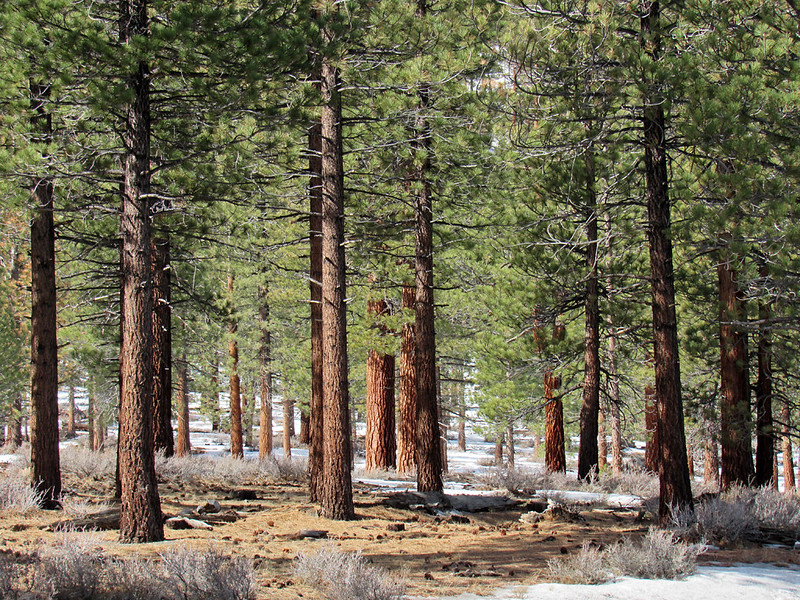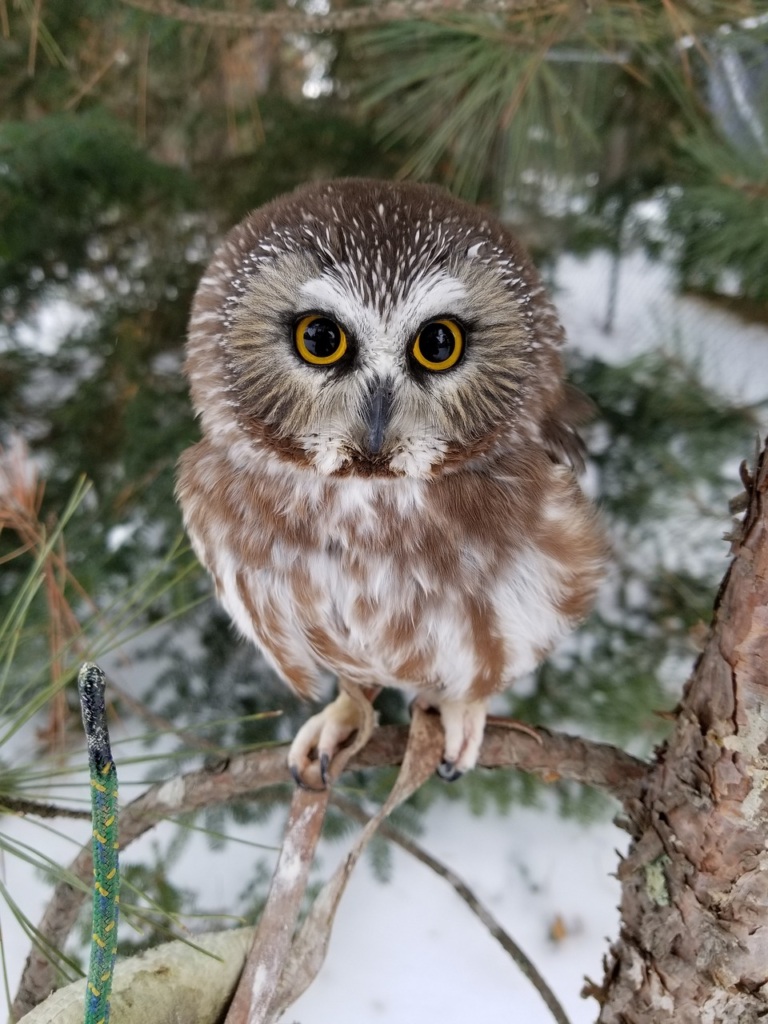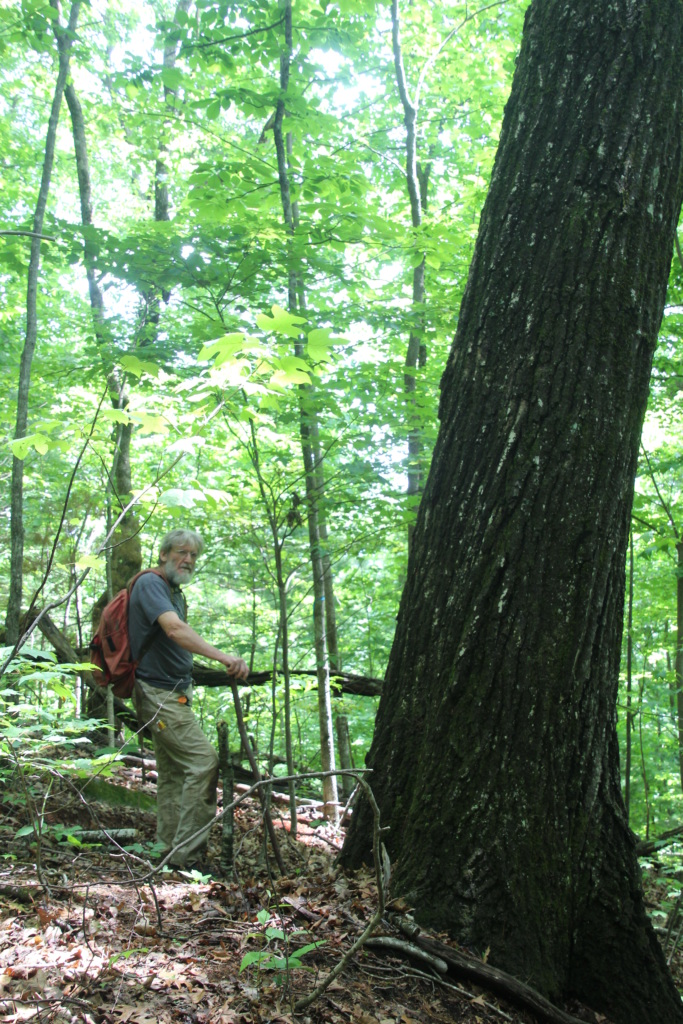
Tell President Biden: Stop the logging of our most important trees
North Carolina’s forests are an important part of our natural heritage. The Forest Service plans to allow timber companies to log in the Nantahala National Forest putting vital old-tree ecosystems at risk.
ADD YOUR NAME
Director, Public Lands Campaign, Environment America
Advocate, Environment North Carolina
North Carolina’s forests are a vital part of our natural heritage. From the whitewater falls in Nantahala to the mile high peaks and forested slopes of Pisgah, our national forests are a big part of what makes North Carolina such an amazing place to live and visit.
But recently the Forest Service approved plans to log old growth trees in the Nantahala National Forest near the Chattooga River headwaters, putting vital ecosystems at risk.
An estimated 33% of the forest targeted for logging is over 100 years old and the trees on top of Brushy Mountain have been around for almost 200 years, according to Chattooga Conservancy. Why are these old forests so important? Not only do they provide critical habitat for threatened species such as green salamanders and the Northern Saw-whet owl, but they are vital allies in our fight against climate change. In fact mature and old-growth forests absorb huge amounts of carbon– more than 10% of the U.S. annual climate pollution– and are a climate solution that we lose the moment we cut them down

Northern saw-whet owlPhoto by CTolman | Pixabay.com
Last year, President Biden issued an executive order which directed federal agencies to conduct an inventory of mature and old-growth forests on America’s federal lands so that policies can be adopted to protect them. Since then, the Forest Service is taking steps in the right direction, which is a huge opportunity to save North Carolina’s oldest trees. We’re calling on the Biden Administration to prohibit the sale of logged old-growth forests.
Less than 1% of trees on the east coast are old-growth. If we don’t save these trees, it will take hundreds of years to grow them back. Our oldest forests support a vast network of plants, animals and insects, sheltering the diversity of nature. And trees absorb more carbon as they grow, acting as a natural climate solution. Protecting our old-growth and mature forests is one of the easiest things we can do to help tackle climate change, save wildlife habitat, and keep North Carolina beautiful.
We’re already making progress toward our goal. Together with our research partners at Environment America Research and Policy Center and coalition partners, we put out a report highlighting harmful logging projects, including the Southside project, last summer. Together with our national network we’ve collected petitions, got media coverage and lobbied members of the Biden administration.
Last year after a notice of proposed rulemaking by the Forest Service, we were able to collect over 500,000 public comments to save America’s oldest trees. This summer, the public will have another opportunity to comment on the Forest Service’s proposed plan to manage old-growth. We plan on collecting just as many if not more comments for the public comment period opening this summer.

One of the old-growth trees to be logged in the Brushy Mountain area of Southside ProjectPhoto by Chattooga Conservancy | Used by permission
Join the campaign to protect our oldest trees and tell President Biden to stop the logging of our most important trees. The timber industry is lobbying to be able to keep logging our oldest trees for profit, but with enough public support, we can persuade the Forest Service it’s in their best interest to enact the strongest protections possible. Until then, the preservation of North Carolina’s old-growth federal forests remain on the chopping block, literally.
With enough support, we can protect some of the oldest trees in North Carolina and help ensure that in 100 years, the threatened Saw Whet owl will still have a forest to call home, majestic stands of Willow Oak and Tulip poplar will still be our allies in the fight against climate change, and our national forests will still be doing their part to provide us with clean water, and an escape from the pressures of everyday life.
Ellen runs campaigns to protect America's beautiful places, from local beachfronts to remote mountain peaks. Prior to her current role, Ellen worked as the organizing director for Environment America’s Climate Defenders campaign. Ellen lives in Denver, where she likes to hike in Colorado's mountains.
Emily advocates for cleaner air, water, clean energy and protecting wildlife and wild places in North Carolina. Emily lives in Cary, North Carolina, where she enjoys trying new recipes and kayaking.
